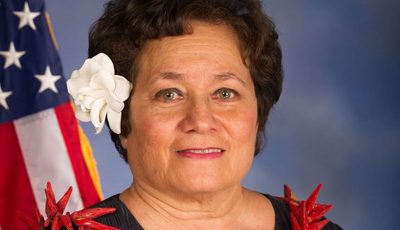Tuna canneries in A. Samoa to halt production
PAGO PAGO, American Samoa (AP)—One of the two tuna canning companies operating in American Samoa announced Thursday it plans to suspend production in December.
In a statement, Bellevue, Washington-based Trimarine says it will end production indefinitely at its Samoa Tuna Processors cannery plant.
Tri Marine told its 800 employees of the plan Thursday. The company didn’t specify how many will be affected.
***
It’s a bad month for tuna employees working in American Samoa with the double whammy announcements of suspensions of operation by both Starkist and Trimarine-owned Samoa Tuna Processors.
Samoa Tuna Processors processes shelf-stable and frozen tuna products distributed in the United States by The Tuna Store. Starkist Samoa, the largest employer in American Samoa, is owned by Korean company Dongwon.
StarKist Samoa announced they will shut down operations during the week starting Oct. 10, while Trimarine stated it will suspend canning operations on Dec. 11.
StarKist spokesperson Michelle Faist said fewer deliveries of fish were now being made to American Samoa as a result of the closure of the high seas, US EEZs, and other traditional fishing grounds to the U.S. fishing fleets.
However, other industry insiders pointed out, Dongwon, owners of the Starkist plant in Samoa, have a number of boats fishing successfully in the waters near American Samoa—but they choose not to supply their own plant in Pago Pago.
Dongwon has bounced back and bounced high this year with its operating profit expected to exceed KRW 100 billion after its second-quarter operating profit surged 206 per cent on year to KRW 45.2 billion (USD 40.4 million). Operating income on sales was up 60 per cent on year and so were tuna prices (up around 30% more than this time last year).
***
American Samoa does not have labor unions, and most employees are paid minimum wage. The company said economic difficulties spurred the decision.
“The challenging economics of canning tuna in American Samoa combined with external factors facing STP make Trimarine’s private-label focused business model for operating the plant economically unsustainable,” the company said in a statement. The company is considering alternatives for the plant, including an outright sale. The company pumped $70 million into the plant before it opened in January 2015.
“This is an incredibly difficult decision and one we make with a great deal of reluctance,” said Trimarine chief executive officer Renato Curto in a statement. “Our hearts go out to STP’s employees, suppliers, service providers and everyone else who depends on STP’s operations.”
In 2014, Trimarine s cannery plant was expected to employ some 1,500 workers at their seaside plant in the village of Atu’u. American Samoa’s economy is dependent on the tuna cannery industry.
“We are $70 million confident of our investment in the cannery project,” Curto said in 2014.
“Ultimately, our decision to invest came down to our belief that tuna is a good, nutritious product, that tuna stocks can be sustainably managed for the long-term and that processing in the islands is the right thing to do,” he said.
Gov. Lolo Matalasi Moliga met Wednesday with Trimarine chief operation officer Joe Hamby, who informed the governor that the “global unfavorable economic environment for the fishing industry and changing dynamics of its business prompted the decision to stop its current financial hemorrhaging,” according to a statement from the governor’s office.
When the plant opened, outgoing chamber of commerce chairman Lewis Wolman said that besides the large workforce, the cannery would have direct impacts like buying products from local vendors and supporting the shipping industry. But it would also have significant indirect impacts, such as the purchases made by workers from their paychecks.
In addition to the cannery, Trimarine ‘s Samoa Tuna Processor Inc., was able to receive fish directly from the fishing boats.
“Though we are suspending canning operations, Trimarine will continue to operate STP as a logistics hub for the Trimarine Group. Unfortunately, this will mean a much reduced labor force,” Curto said Thursday.
“Due to a complex series of factors, including a long history of poorly thought out and misguided government policies, we find ourselves at a crossroads,” American Samoa delegate to the U.S. House of Representative Aumua Amata Radewagen said in a statement Thursday.
“It was my top priority during my first term in Congress to begin reversing those policies, and I will continue that mission in the hopes that the island’s remaining cannery can prosper,” she said.
Curto said the company has invested well over $200 million in American Samoa between its fleet and facilities.
SunKist also operates a tuna cannery in American Samoa, but the plant has been temporarily out of operation for the past week because of a lack of fish. (with PNA)


























